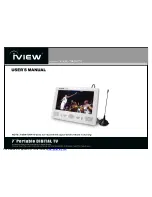
3
OPERATION
3.1
BEFORE OPERATING THE HYDRAPAK
WARNING:
ONLY TRAINED PERSONNEL SHALL OPERATE THIS EQUIPMENT. A TRAINED PERSON
IS ONE WHO HAS READ AND THOROUGHLY UNDERSTANDS THIS INSTRUCTION
MANUAL AND RELATED EQUIPMENT MANUALS AND, THROUGH TRAINING AND
EXPERIENCE, HAS SHOWN KNOWLEDGE REGARDING THE SAFE OPERATIONAL
PROCEDURES.
WARNING:
FOLLOW THE PRE-OPERATIVE CHECKLIST IN THE FRONT OF THIS MANUAL BEFORE
OPERATING.
CAUTION:
USE THE HYDRAPAK WITH OPEN CENTER TOOLS ONLY.
1.
Insure the hydraulic tools to be used are compatible with a 5 gpm or 10 gpm output. Do not exceed the recommended
flow and pressure for the hydraulic tools in use.
2.
Thoroughly read the engine and associated hydraulic equipment instruction manuals for complete safety, operating and
maintenance information before operating.
3.
Obey all the safety labels provided on your hydraulic tool and HydraPak. These labels warn you of potential hazards
that can cause death or serious injury. If a label comes off or becomes hard to read, contact Reimann & Georger
Corporation for replacement information.
4.
Construction area is to be kept clear of unauthorized personnel. Place barricades or secure the area in such a manner
that no personnel can be injured.
5.
Position the HydraPak to minimize the amount of construction debris and dust it receives.
3.1.1
Checking the Engine
1.
Check engine oil level. Refer to Section 2.1 for the type and amount of oil to add.
2.
Check the engine cylinder fins, air cleaner, and air intake screen for dirt or obstructions. Clean as required.
3.
Fill the fuel tank with an approved fuel container in a well ventilated area. Make sure the gas caps on the HydraPak
and fuel container are properly tightened. Move fuel container at least ten feet from HydraPak before starting the
engine.
4.
For high altitude operation, a carburetor jet kit is required. Consult your local supplier or Reimann & Georger
Corporation for details.
3.1.2
Checking the Hydraulic System
1.
Check hydraulic reservoir as follows.
a.
Replace the shipping cap with the chrome filler/breather cap provided.
b.
Fluid level should be one inch from the top of tank.
2.
Before making any hydraulic connections, inspect all hydraulic lines, fittings and hoses for leaks and risks of rupture as
follows:
5







































